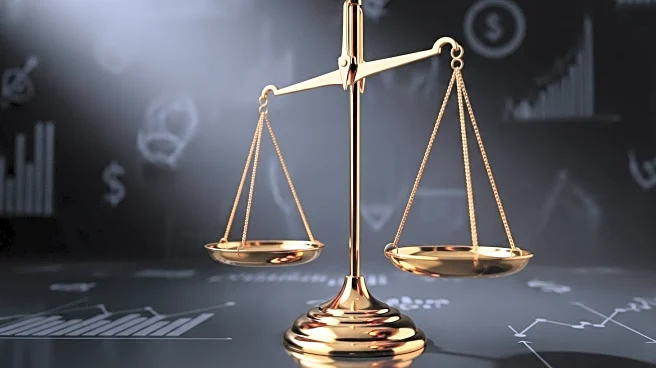What's Happening?
President Trump has shortlisted three candidates for the next Federal Reserve Chair: Kevin Hassett, Kevin Warsh, and Christopher Waller. Each candidate presents different approaches to monetary policy, particularly regarding interest rates and inflation. Hassett advocates for significant rate cuts to stimulate economic growth, while Warsh supports a more balanced approach with a focus on inflation control. Waller emphasizes data-driven decisions and the importance of the Fed's independence. The selection of the next Fed Chair is crucial as it will influence the direction of U.S. monetary policy and market stability.
Why It's Important?
The choice of Fed Chair will have significant implications for the U.S. economy, affecting interest rates, inflation, and market volatility. Hassett's approach could lead to rapid rate cuts, benefiting sectors like real estate and equities but potentially increasing inflation risks. Warsh's focus on inflation control might stabilize prices but could introduce policy uncertainty. Waller's balanced approach aims to maintain the Fed's independence while addressing economic challenges. The decision will impact investors, businesses, and consumers, shaping economic growth and stability.
What's Next?
The appointment of the new Fed Chair will likely lead to shifts in monetary policy, influencing market dynamics and economic forecasts. Stakeholders will closely monitor the Fed's actions, particularly regarding interest rate adjustments and inflation management. The decision could also spark debates on the Fed's independence and its role in supporting economic growth.
Beyond the Headlines
The broader implications include potential challenges to the Fed's autonomy and the politicization of monetary policy. The appointment could affect long-term economic strategies and investor confidence, highlighting the need for a balanced approach to ensure sustainable growth and financial stability.









